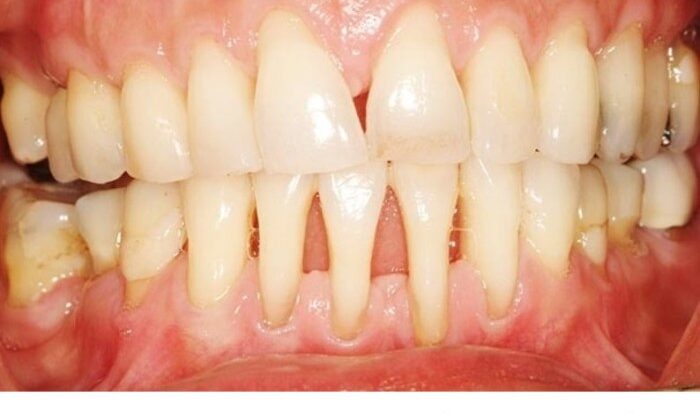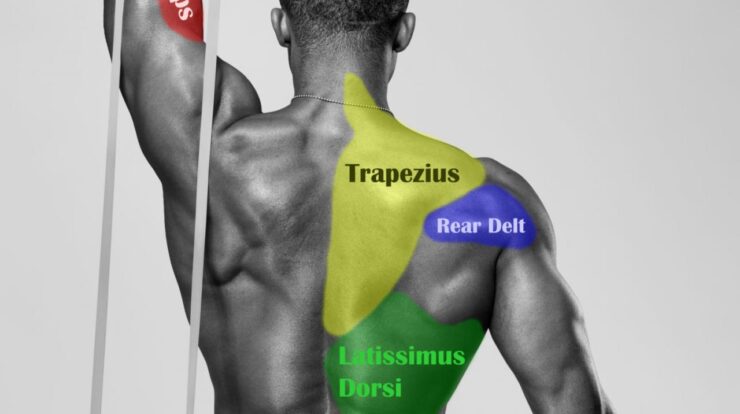
How to cure gum disease without a dentist – If you’re dealing with gum disease, you might be wondering if there’s anything you can do to cure it without going to the dentist. The answer is yes! There are a number of home remedies and other treatments that can help to improve your gum health and get rid of gum disease.
In this guide, we’ll discuss the different home remedies for gum disease, as well as other treatments that can help. We’ll also provide tips on how to prevent gum disease in the first place.
Home Remedies for Gum Disease
Gum disease is a common condition that can cause inflammation, bleeding, and pain. While it is important to see a dentist for regular checkups and treatment, there are also several home remedies that can help to improve gum health.
Salt Water Rinses
Salt water rinses are a simple and effective way to reduce inflammation and kill bacteria in the mouth. To make a salt water rinse, dissolve 1/2 teaspoon of salt in 8 ounces of warm water. Rinse your mouth with the solution for 30 seconds, then spit it out.
You can repeat this process several times a day.
If you’re looking for ways to cure gum disease without a dentist, there are a few things you can try. One option is to use a saltwater rinse. Another is to apply a turmeric paste to your gums. For more information on how to cure gum disease without a dentist, click here .
Tea Tree Oil
Tea tree oil is a natural antiseptic and antibacterial agent. It can be used to reduce inflammation and kill bacteria in the mouth. To use tea tree oil, add a few drops to a glass of water and rinse your mouth for 30 seconds.
Gum disease is a common problem that can lead to serious health issues if left untreated. While it’s always best to see a dentist for professional treatment, there are some things you can do at home to help improve your gum health.
For more information on how to cure gum disease without a dentist, check out this helpful guide: how to cure gum disease without a dentist . It provides detailed instructions on how to treat gum disease naturally and effectively.
You can also apply tea tree oil directly to your gums with a cotton swab.
Turmeric
Turmeric is a spice that has anti-inflammatory and antibacterial properties. It can be used to reduce inflammation and pain in the gums. To use turmeric, mix 1/2 teaspoon of turmeric powder with 1/4 cup of water to form a paste.
Apply the paste to your gums and leave it on for 10 minutes. Rinse your mouth with warm water to remove the paste.
Oral Hygiene Practices
Maintaining proper oral hygiene is essential for preventing and treating gum disease. Effective oral hygiene practices include brushing, flossing, using mouthwash, and cleaning your tongue.
If you’re looking for ways to cure gum disease without a dentist, there are plenty of resources available online. You can check out Westchester Mecconline for more information on the topic. They have a wealth of knowledge and resources that can help you get started on your journey to healthier gums.
Brushing
Brush your teeth twice a day, for at least two minutes each time, using a soft-bristled toothbrush and fluoride toothpaste. Angle the brush at a 45-degree angle to the gum line and gently move it in small circular motions. Brush all surfaces of each tooth, including the chewing surfaces, inner surfaces, and outer surfaces.
Flossing
Floss your teeth once a day to remove plaque and food particles from between your teeth. Use a piece of floss about 18 inches long and wrap it around your middle fingers. Gently slide the floss between each tooth, moving it up and down along the sides of the teeth and under the gum line.
Avoid snapping the floss, as this can damage your gums.
Mouthwashes
Mouthwashes can help reduce plaque and bacteria in the mouth. Choose a mouthwash that contains fluoride and an antibacterial agent, such as chlorhexidine or cetylpyridinium chloride. Use mouthwash after brushing and flossing to help kill bacteria and freshen your breath.
Tongue Cleaning
Bacteria can also accumulate on the tongue, so cleaning your tongue is an important part of oral hygiene. Use a tongue cleaner or the back of your toothbrush to gently scrape the surface of your tongue and remove bacteria.
Dietary Modifications

Dietary choices play a crucial role in oral health. Certain foods can contribute to gum disease, while others promote oral well-being. Understanding these dietary influences can empower you to make informed choices that support your oral health.
If you’re dealing with gum disease, you might be wondering if there’s anything you can do to cure it without going to the dentist. The good news is that there are a few things you can try at home. Check out this article on how to cure gum disease without a dentist to learn more about the various methods and natural remedies that can help you get rid of gum disease and improve your oral health.
Limiting Sugary Drinks and Processed Foods
Sugary drinks and processed foods are major contributors to gum disease. Sugary drinks, including sodas, juices, and sports drinks, feed the bacteria in your mouth, leading to plaque formation and inflammation. Processed foods often contain high levels of refined carbohydrates, which can also contribute to plaque buildup.
Consuming Fruits, Vegetables, and Whole Grains
In contrast, fruits, vegetables, and whole grains are beneficial for oral health. Fruits and vegetables are rich in vitamins, minerals, and antioxidants, which support gum health and reduce inflammation. Whole grains provide fiber, which helps clean teeth and stimulate saliva production, reducing the risk of gum disease.
Alternative Treatments
Alternative treatments for gum disease are gaining popularity due to their potential to provide effective results without the need for invasive surgical procedures. Two notable alternative treatments are laser therapy and ozone therapy.
Laser Therapy
Laser therapy utilizes high-energy laser beams to target and eliminate bacteria and infected tissue in the periodontal pockets. The precise nature of laser therapy allows for targeted treatment, minimizing damage to surrounding healthy tissue.Pros:* Minimal discomfort and bleeding
- Effective in reducing inflammation and bacterial load
- Promotes tissue regeneration and healing
Cons:* Can be expensive
- May require multiple treatments
- Not suitable for all patients
Ozone Therapy
Ozone therapy involves the use of ozone gas to disinfect and stimulate the periodontal tissues. Ozone has antimicrobial properties that help eliminate bacteria, while also promoting tissue healing and reducing inflammation.Pros:* Effective in killing bacteria and reducing inflammation
- Non-invasive and painless
- Can improve blood flow and oxygenation to the gums
Cons:* May cause temporary discomfort or irritation
- Not widely available
- Long-term effects are still being studied
The choice between laser therapy and ozone therapy depends on individual patient factors, such as the severity of gum disease, overall health, and financial considerations. It is important to consult with a qualified healthcare professional to determine the most appropriate treatment option.
Prevention and Management
Gum disease is largely preventable and manageable with proper oral hygiene practices and regular dental checkups. By understanding the signs and symptoms of gum disease, you can take proactive steps to prevent its progression and maintain optimal oral health.
Regular dental checkups and cleanings are crucial for early detection and prevention of gum disease. Your dentist can thoroughly examine your gums and teeth, remove plaque and tartar buildup, and provide professional advice on proper oral hygiene techniques.
When you’re struggling with gum disease, it can be tough to know where to turn. The dentist is always an option, but what if you don’t have the time or money for an appointment? Luckily, there are a few things you can do at home to help cure gum disease without a dentist.
Click here to learn more about how to cure gum disease without a dentist.
Signs and Symptoms of Gum Disease, How to cure gum disease without a dentist
Gum disease often presents with subtle signs and symptoms that can easily go unnoticed. Being aware of these early indicators allows for prompt intervention and treatment:
- Swollen, red, or tender gums
- Bleeding gums while brushing or flossing
- Receding gums (gums pulling away from teeth)
- Loose or shifting teeth
- Persistent bad breath or taste in the mouth
Managing Gum Disease at Home
In addition to professional dental care, managing gum disease at home is essential for maintaining oral health. Implementing the following tips can help prevent further progression and promote gum health:
- Brush your teeth twice daily with a soft-bristled toothbrush and fluoride toothpaste.
- Floss daily to remove plaque and food particles between teeth.
- Use an antibacterial mouthwash to kill bacteria and reduce inflammation.
- Quit smoking, as smoking weakens the immune system and impairs gum health.
- Maintain a healthy diet rich in fruits, vegetables, and whole grains.
- Limit sugary foods and drinks, which can feed bacteria in the mouth.
End of Discussion: How To Cure Gum Disease Without A Dentist
Gum disease is a common problem, but it’s one that can be easily prevented and treated. By following the tips in this guide, you can improve your gum health and keep your smile healthy for years to come.
FAQ Guide
Can I cure gum disease without going to the dentist?
Yes, there are a number of home remedies and other treatments that can help to improve your gum health and get rid of gum disease.
What are the best home remedies for gum disease?
Some of the best home remedies for gum disease include salt water rinses, tea tree oil, and turmeric.
What are the signs and symptoms of gum disease?
Some of the signs and symptoms of gum disease include bleeding gums, swollen gums, and receding gums.





